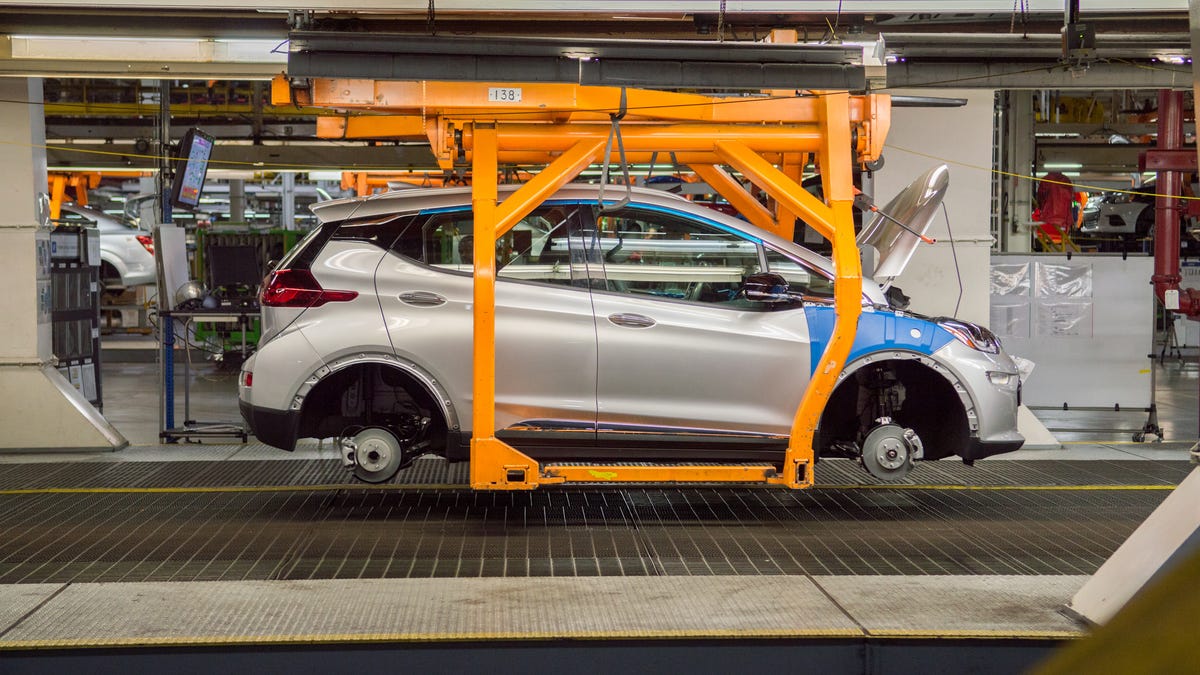Chevy warns the Bolt EV's battery might lose some charge capacity, but that's unlikely
The car's manual says capacity may drop by 10 to 40 percent over the life of the battery's eight-year warranty period.

Is there anything less exciting than reading a warranty? Probably not, but if you're a new Chevrolet Bolt EV owner, it might behoove you to know what General Motors considers normal battery degradation, however unlikely it is to occur.
Green Car Reports first noted that the Chevrolet Bolt EV owner's manual, which is now online, has some interesting warranty text regarding battery degradation: "Depending on use, the battery may degrade as little as 10 percent to as much as 40 percent of capacity over the warranty period." GM warranties the Bolt EV battery for eight years or 100,000 miles, whichever comes first.
That may sound concerning, as a 40-percent capacity reduction means losing nearly 100 miles of range on a battery with a 238-mile EPA range estimate. Fred Ligouri, a GM spokesman, pointed out to Roadshow that this is exactly the same text found in the warranty for the Volt.
"Under extreme circumstances it's possible that someone could see a 40% reduction in range over the course of the 8-year/100,000 mile warranty period," Ligouri said via email. "As we have seen with the more than 100,000 Volts on the road, our battery packs maintain their range and capacity very well over the life of the vehicle with minimal and varying levels of degradation. Like Volt, the 2017 Bolt EV offers one of the most competitive battery warranty coverages in the industry."
As InsideEVs pointed out earlier this year, GM claimed that it has replaced zero first-generation Volt battery packs because of "general capacity degradation." While the warranty text may outline an expected degradation, it appears that it's more of a legal CYA move than it is an actual expectation of lost capacity over those eight years.
I trekked out to GM's battery-testing facility at its Warren, Michigan campus earlier this year, and talked to engineers who've been working on the Bolt EV's battery pack. They told me that they've done plenty of long-term stress testing on both Bolt and Volt battery packs, and it's proving mighty difficult to get the packs to lose capacity.
Electrek notes that Tesla has similar language in its battery warranty, but it makes no mention of expected degradation. Tesla's warranty does say that any amount of capacity loss is not covered by the warranty.
Of course, both Chevrolet and Tesla still cover packs that have defects, which is par for the course for gas-powered vehicles; if something breaks due to a manufacturing error, it should be replaced under warranty. So, while prospective Bolt EV owners should be aware that some capacity loss might occur, previous evidence from earlier packs shows that a battery replacement will be an unlikely event.
Update, 12:01 p.m. Eastern: Added additional manufacturer comment.

